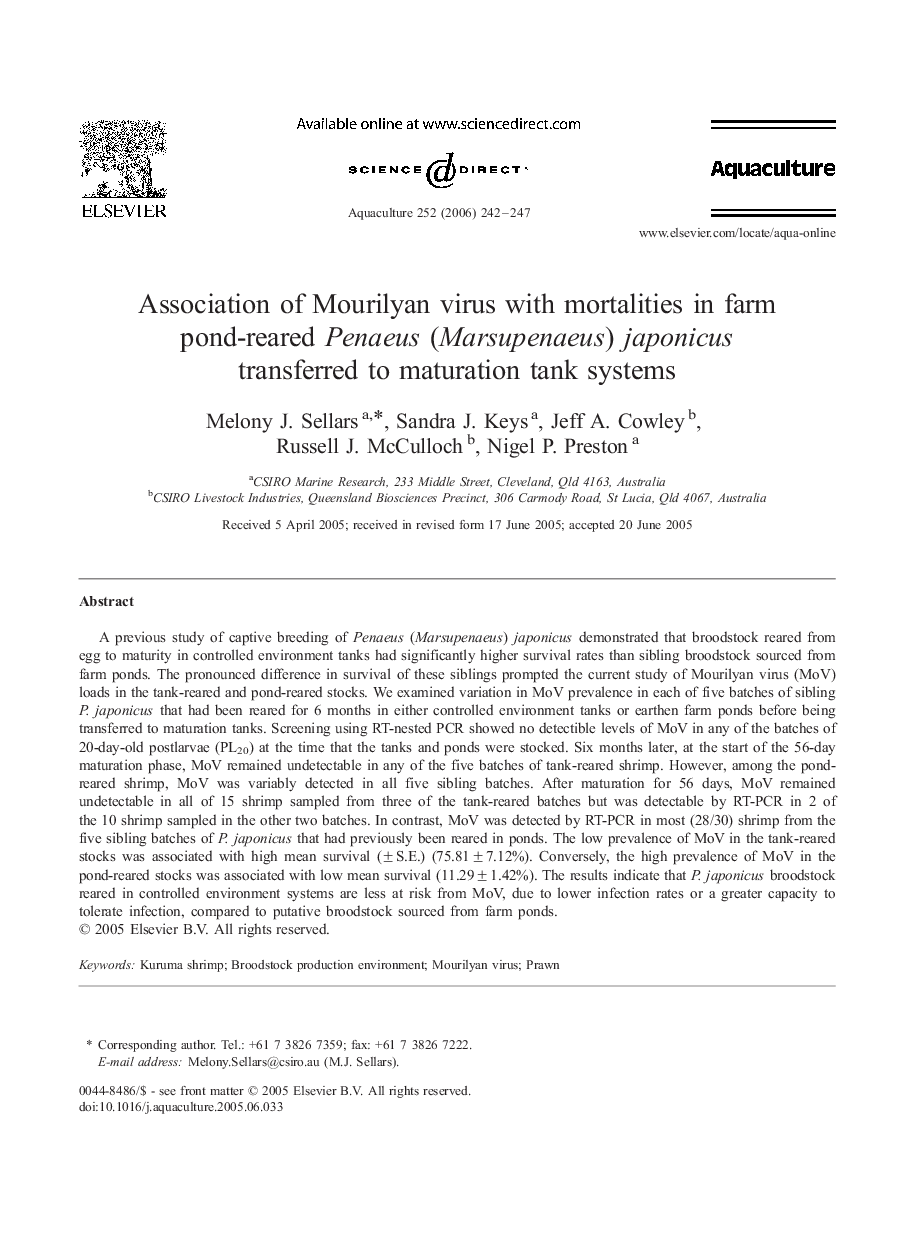| Article ID | Journal | Published Year | Pages | File Type |
|---|---|---|---|---|
| 2426156 | Aquaculture | 2006 | 6 Pages |
A previous study of captive breeding of Penaeus (Marsupenaeus) japonicus demonstrated that broodstock reared from egg to maturity in controlled environment tanks had significantly higher survival rates than sibling broodstock sourced from farm ponds. The pronounced difference in survival of these siblings prompted the current study of Mourilyan virus (MoV) loads in the tank-reared and pond-reared stocks. We examined variation in MoV prevalence in each of five batches of sibling P. japonicus that had been reared for 6 months in either controlled environment tanks or earthen farm ponds before being transferred to maturation tanks. Screening using RT-nested PCR showed no detectible levels of MoV in any of the batches of 20-day-old postlarvae (PL20) at the time that the tanks and ponds were stocked. Six months later, at the start of the 56-day maturation phase, MoV remained undetectable in any of the five batches of tank-reared shrimp. However, among the pond-reared shrimp, MoV was variably detected in all five sibling batches. After maturation for 56 days, MoV remained undetectable in all of 15 shrimp sampled from three of the tank-reared batches but was detectable by RT-PCR in 2 of the 10 shrimp sampled in the other two batches. In contrast, MoV was detected by RT-PCR in most (28/30) shrimp from the five sibling batches of P. japonicus that had previously been reared in ponds. The low prevalence of MoV in the tank-reared stocks was associated with high mean survival (± S.E.) (75.81 ± 7.12%). Conversely, the high prevalence of MoV in the pond-reared stocks was associated with low mean survival (11.29 ± 1.42%). The results indicate that P. japonicus broodstock reared in controlled environment systems are less at risk from MoV, due to lower infection rates or a greater capacity to tolerate infection, compared to putative broodstock sourced from farm ponds.
